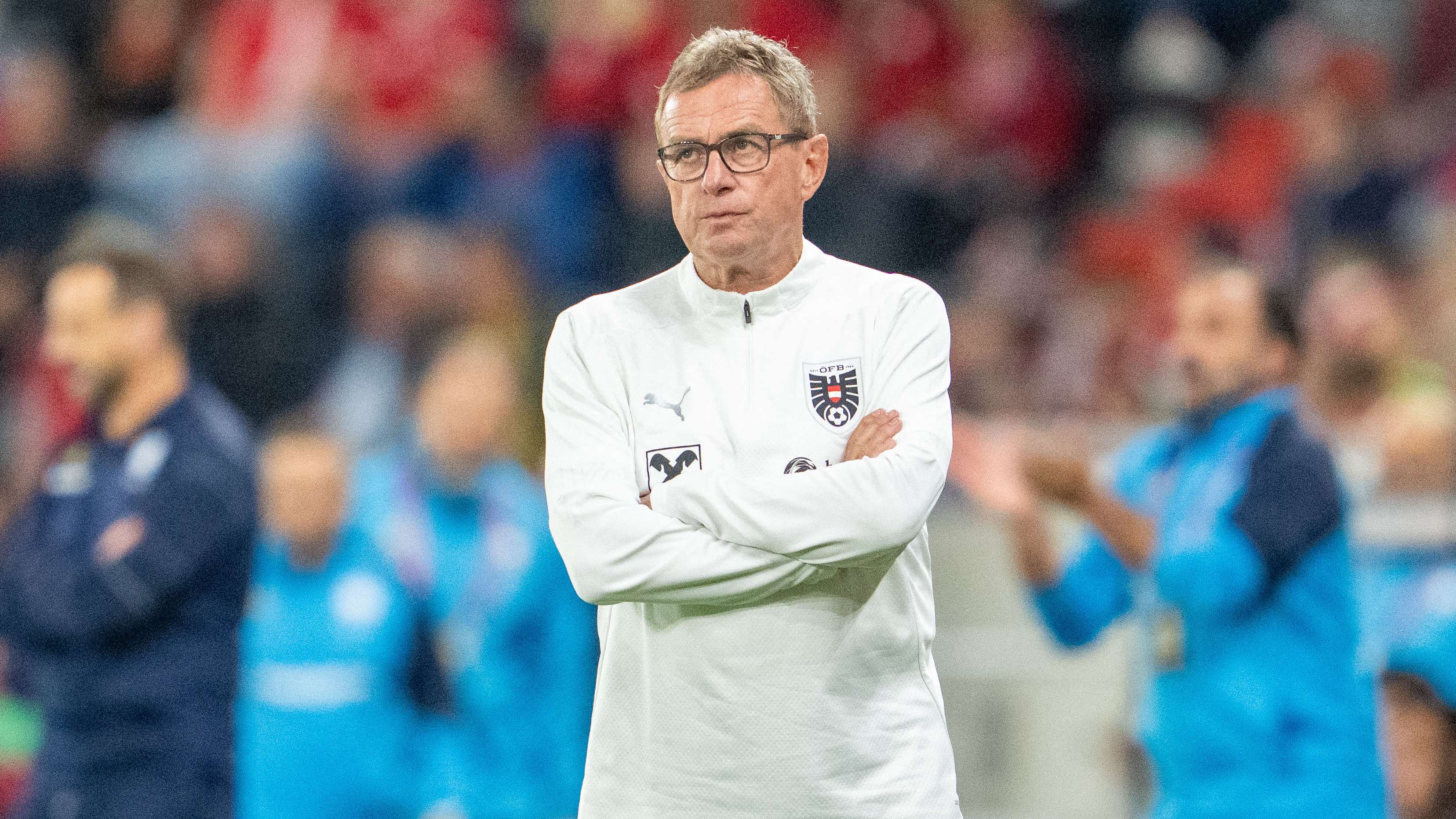
Ralf Rangnick Ready to Walk Away from Austria Job Despite Perfect World Cup Qualifying Start
Ralf Rangnick and Austria’s World Cup Ambition
Ralf Rangnick has always been a man of principles. The 67-year-old German coach, known as the “Godfather of Gegenpressing,” has never shied away from making tough calls throughout his career. Now, even as Austria enjoy a flawless start to their 2026 World Cup qualifying campaign, he has made his stance perfectly clear: if Austria fail to reach the tournament, he will step down.
It’s a bold position for a coach whose reputation has often been linked to innovation and long-term planning. But in Rangnick’s mind, there is no middle ground. Either Austria end their near three-decade exile from the world stage, or he makes way for someone else.
A Perfect Start with High Stakes
On paper, things couldn’t be going much better. Austria have opened their campaign in Group H with three wins from three, dispatching their early opponents with the kind of efficiency that has long been absent from the national setup. The results have injected fresh belief into a nation that hasn’t graced a World Cup since 1998.
Yet, despite that perfect start, they don’t top the group. Bosnia and Herzegovina, who have played one game more, sit ahead with four wins. That sets the stage for a high-stakes showdown in Zenica, where Austria will need at least a two-goal victory to leapfrog their rivals. It’s the kind of game that feels bigger than just three points — as Rangnick himself admitted, “It’s a six-point game.”
The reward? A chance to seize control of the group, maintain momentum, and send a message to both supporters and critics that Austria mean business this time around.
Austria’s Long Road Back
It’s easy to forget just how long Austria have been waiting for a return to the global stage. Their last appearance at a World Cup came in France in 1998, when players like Andreas Herzog and Toni Polster carried the flag. Since then, the team have had flashes of promise but repeatedly stumbled in key moments, often falling victim to inconsistency and missed opportunities.
Even hosting Euro 2008 in partnership with Switzerland didn’t spark a genuine breakthrough, with Austria crashing out at the group stage. For a football-loving nation, the drought has been painful. Generations of talented players have come and gone without the chance to test themselves against the world’s best on football’s grandest stage.
Rangnick, however, believes this generation is different. With David Alaba’s experience and leadership, Marcel Sabitzer’s creativity and drive, and a crop of younger talents emerging from the Bundesliga, Austria have the tools to finally change the narrative.
Rangnick’s Contract and His Philosophy
When Rangnick accepted the Austria job in 2022, it was clear he wanted a challenge. Fresh off a turbulent interim spell at Manchester United, where his methods didn’t quite mesh with the chaos of Old Trafford, he was eager to find a project where his ideas could take root. Austria offered exactly that.
His contract, however, comes with a catch: it only runs as long as Austria remain in contention for World Cup qualification. In other words, failure is not an option. And for Rangnick, that is precisely how he wants it.
Austrian FA chairman Josef Proll summed it up in a recent interview with APA: “If he can’t do it, he won’t continue. He has made that clear. Otherwise, there will be a contract until the World Cup, and we will discuss it at the appropriate time.”
It’s a brutally straightforward arrangement, but one that reflects Rangnick’s philosophy. He isn’t here to collect a paycheck or linger in mediocrity. He’s here to take Austria to North America in 2026. Anything less, and he’ll be gone.
The Ralf Rangnick Effect
So far, his impact has been undeniable. Rangnick has brought structure, discipline, and a tactical identity to a team that often looked lost in the past. Austria’s pressing game has sharpened, their defensive lines are more compact, and players are buying into the philosophy.
Behind the scenes, too, Rangnick has demanded professionalism. Training sessions are intense, fitness standards are higher, and there’s a clear sense of accountability. It’s the kind of environment Austria have long lacked, and the results are showing early.
Players like Sabitzer have praised the clarity of Rangnick’s ideas, while younger squad members speak of how much they’ve improved under his guidance. Even David Alaba, who has seen everything from Champions League glory with Real Madrid to Euros heartbreak with Austria, has embraced the German’s leadership.
A Defining Night in Zenica
All of this, though, comes down to moments like the upcoming clash against Bosnia and Herzegovina. Zenica will not be an easy place to go. Bosnia have looked strong, with experienced players like Edin Džeko still capable of making the difference, and the atmosphere is notoriously hostile.
But if Austria want to prove they belong back among the elite, this is the type of game they must win — and win convincingly. A two-goal victory would not only put them top of Group H but also set a historic marker: four wins from four to start a World Cup qualifying campaign, something Austria have never achieved before.
For Rangnick, that kind of momentum could be priceless. For Austria, it could be the clearest sign yet that the World Cup drought is finally coming to an end.
What Happens If Austria Fail?
The flip side, of course, is brutal. If Austria falter in qualifying, Rangnick will walk, leaving the federation scrambling for a replacement at a critical moment. With the European Championships still fresh in memory and the World Cup expanding in 2026, the stakes couldn’t be higher.
But Rangnick has made peace with that scenario. His reputation as a builder of projects means he won’t be short of opportunities elsewhere. For Austria, though, failure would be a hammer blow.
Final Thoughts: Rangnick’s All-or-Nothing Gamble
In many ways, Rangnick’s stance captures the essence of his coaching career: uncompromising, focused, and driven by results. He has never been one to sugarcoat the truth or accept mediocrity. For Austria, that might be exactly what they need.
With a golden opportunity in front of them, a squad full of experience and promise, and a tactician who knows how to engineer success, Austria’s path is clear. Beat Bosnia, keep winning, and make it back to the World Cup for the first time in nearly 30 years.
Anything less, and Rangnick will be gone.
But if he succeeds? Then Austria won’t just have qualified for 2026 — they’ll have re-established themselves as a force in European football. And that crown, after all these years, would feel worth the wait.










































There are no comments yet. Be the first to comment!